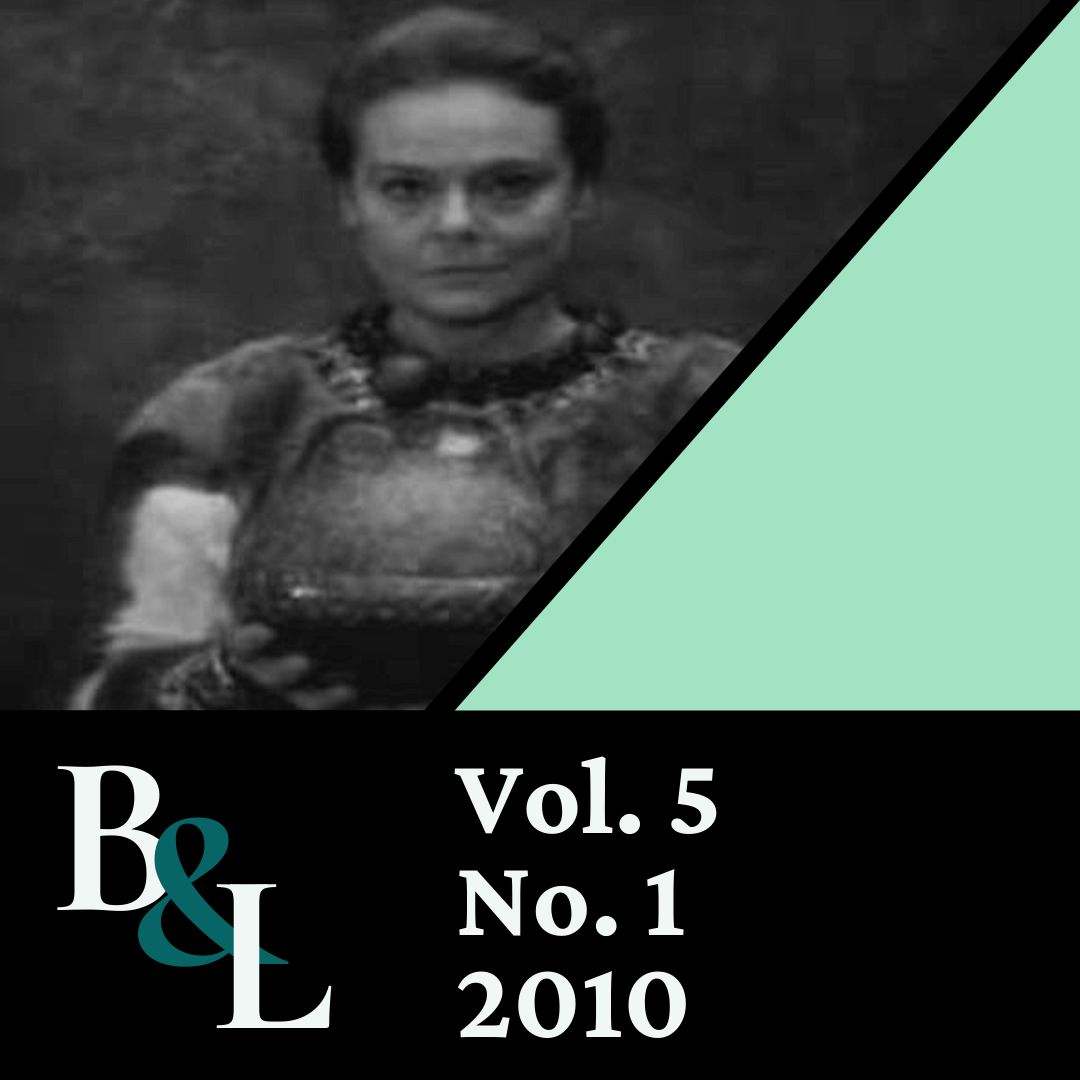The (Dis)possession of Lear's Two Bodies
Madness, Demystification, and Domestic Space in Peter Brook's King Lear
Abstract
Criticism of Peter Brook's King Lear (1971) emphasizes the film's relationship to the theories of Jan Kott and Antonin Artaud, a tendency that has led many to interpret the film as merely a bleak and narrow redaction of Shakespeare's play. This essay offers an alternative reading of the film rooted in both early modern theories of kingship and contemporary theories of embodiment in order to approach the film's nihilistic idiom from a different valence. In arguing that both playtext and filmtext explore tensions between the political and natural bodies of the king, I claim that the film dramatizes Lear's recognition that kingship is a metonymy imposed upon the enfleshed human subject, a subject which is dependent for existence upon the generative powers of femininity. Once Lear recognizes his dependence on and possession by female domestic authority, he attempts to escape the demystified, shameful flesh that constitutes his "unaccommodated" subjectivity, and ultimately achieves this escape through the cinematic techniques of fragmentation that characterize Brook's filmic language. Thus, we should value Brook's film not only because of its reevaluation of Goneril and Regan, but also because it utilizes incipient postmodern theories of art and the subject of its late 1960s milieu in order to realize crucial historical and cultural discourses already existing in Shakespeare's playtext.


